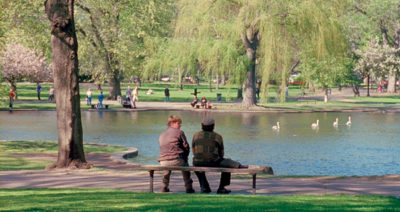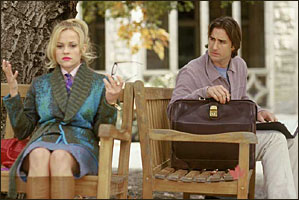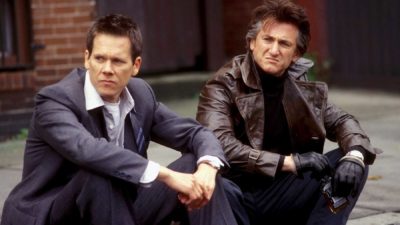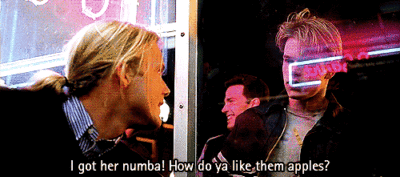Editor's Note
Hello, #USIH friends! Today we’re exploring the city’s wicked deep history through the lens of modern film. Pass the popcorn and the Perry Miller, check out our #USIH2020 CFP due 1 June 2020, and learn more about our special edition of Historians At The Movies (#HATM) here.

Good Will Hunting (1997)
Boston holds a unique place in my heart, although it did not start out that way. As a child I disliked Boston, even though I live over a thousand miles away. I grew up a fan of the Milwaukee Brewers and saw the Boston Red Sox as a rival. As I got older, I took sides in the Celtics/Lakers, and I sided with Kareem and Magic. When I decided to go to college “back east” (as people say), I chose Bowdoin College and immediately found myself surround by New Englanders, Boston sports fans, and even heard my first authentic Boston accent. I started to develop an appreciation for Boston sports culture, especially the marathon. I moved to the greater Boston area for graduate school and found myself spending a lot of time at the Boston Public Library, biking along the Charles River, and hanging out with old college friends who had landed in Cambridge. I also continued celebrate Marathon Monday like we all should.
By the time I was living in the Boston area the city had become a popular location for television shows. During my grad school years there was Boston Common (1996), Ally McBeal (1997), The Practice (1997), Two Guy and A Girl (1998), Boston Public (2000), and Crossing Jordan (2001) all set in Boston. At the same time that Boston was taking the small screen by storm the city and the whole area was about to make a major foray onto the big screen. There had been Boston-based films before but from the late 1990s on, Boston was rarely far from the bright lights of the big screen. Good Will Hunting (1997), A Civil Action (1998), The Perfect Storm (2000), Prozac Nation (2001), Legally Blonde (2001), Mystic River (2003), Fever Pitch (2005), Gone Baby Gone (2007), and on and on.

Legally Blonde (2001)
Boston films tend to showcase important elements of the Boston experience or what is associated with the area. It is difficult to name a Boston film that does not give some attention to institutions like the Catholic Church, Harvard University, or the Red Sox. Many of these films feature people from working class neighborhoods in East Boston, Southie, or Dorchester, and quite often they are portrayed as people who have survived hardship or trauma, have close familial or neighborhood ties, and they tend to drink heavily.
Hollywood loves a good trope. Filmmakers rely on them to help convey meaning in a shorter period of time. Show the Eiffel Tower with an accordion playing in the background and the audience knows the film is set in Paris. Show Big Ben and play the chorus from “Rule Britannia” and the audience knows the film has gone to London. To show that a film is in Boston the tropes include triple-deckers, Fenway Park, and the working-class accent. There are other landmarks that have become associated with Boston over the years, in films and television shows, like the Back Bay skyline, the golden dome of the State House, the Tobin Bridge, the Citgo sign, and thanks to the Big Dig we know have the beautiful Bunker Hill bridge. Still, the one iconic element of Boston life that persists is that accent.
The persistence of the trope of the working-class, Catholic, probably Irish, tough guy character tells us something about how Boston is seen or wants to be seen on film. In contrast to the stiff upper lip of the New England Brahmins the working-class Bostonians are loud and passionate people. They are loud and profane, whether it is at a family dinner or yelling at the television, their hearts are on their sleeves. Their men are cut from rough cloth, they love their sports and their booze, and they are ready to fight at a moment’s notice. This is a masculinity that diverges from the Puritan intellectuals I read about in Perry Miller’s work, who were more likely to pick up a pen than pick a fight.

Mystic River (2003)
Miller saw the great conflict of the New England mind as being between free will and determinism, between the Puritan intellect and the piety required of Calvinism. As David D. Hall wrote, “It is the dilemma of how to reconcile the freedom of the human will and a deterministic God.”[1] This could also be viewed as an internal struggle between one’s traditions and birth right on one side and the ability to create one’s own life on the other. This theme is not unusual, but it holds particular meaning in a Boston film. In Mystic River, we see the forces that seem to keep people in place, that enforce cycles of violence and loss, in the characters of Jimmy (Sean Penn) and Dave (Tim Robbins) whose paths in life seem to be set as children. Jimmy and Dave have never lived beyond the neighborhood or the dark shadow cast over them by the men who abused Dave as a child. Dave is still haunted by the abuse and it rules his actions. Jimmy has never let go of it either, still wondering what might have been different if he had been taken instead of Dave, and his survival has played a significant role in how he sees himself. We also see Sean (Kevin Bacon) who is no longer one of the guys as he has become as officer in the state police, but even his work in law enforcement seems tied to the incident from the three boys’ childhood, when Dave was abducted. Jimmy’s daughter and her boyfriend represent a chance at free will as they determined, in secret, to run away together and get married – against their parents’ will. They pay the ultimate price as determinism defeats free will and the cycle of violence claims another generation.
Development of the mind, as a way to enhance free will, is another theme that connects the Boston of today to the Boston of Perry Miller. For Boston, the dream of making it often means getting across the Charles River to Cambridge, home of MIT and most significantly, Harvard. This is not to say that Boston itself is not host to several excellent schools, but Harvard and MIT are almost a shorthand for elite east coast education. Harvard has served as the backdrop for romance like in Love Story, or as a shorthand for a place with a lot of highly intelligent strivers like With Honors (1994) or The Social Network (2010). Sometimes the pressure of Harvard gets to the students like in Prozac Nation (2001). And sometimes some of those students come across as snotty wannabe intellectuals, while the locals are working class heroes, like in Good Will Hunting (1997). Within this context, Harvard Law School holds a special place in films for the elite of the elite, and some of those students can succumb to pressure as well, like in The Paper Chase (1973) where John Houseman becomes the most iconic characterization of a law professor ever on film. Harvard is not the only shorthand for higher education for Boston films, both Good Will Hunting and 21 (2008) have scenes set at MIT and Mona Lisa Smile (2003) is set down the road at Wellesley College.

Good Will Hunting (1997)
Both of these theme come together in a film that has, for so many people, come to be seen as a quintessential Boston film, Matt Damon and Ben Affleck’s Good Will Hunting (1997). This film contains all of the stereotyped Boston masculinity of, full of violence, alcohol, and unearned bravado, has become almost hackneyed in other Boston films. The working-class heroes have the close ties to friends and neighborhood traditions that make us believe that the characters have been doing essentially the same thing for years. Going to little league games, the batting cage, picking a fight with the kids who got the better of you on a Kindergarten playground. Will (Matt Damon) is in danger of being trapped by what he understands to be the life that was preordained for him. Will believes that he will be happy if he spends his life working alongside his buddies in construction and watching his kids go to the same schools and play on the same fields he did, that he only needs live the life he was born to in Southie. Sean (Robin Williams), Will’s therapist, is uniquely positioned because he has faced Will’s dilemma. Sean is from the same working-class Boston that Will is, he made it to college in Cambridge and the advanced degree, but he decided to serve his community. He teaches at a community college and is looked upon with pity and derision by his classmates (enough so that he stopped going to the reunions). Sean made the choice to return to the neighborhood, but it was a choice and he is able to convey to Will that it matters less whether he stays or goes than if he makes the choice. Sean encourages Will not to merely accept the life he was born in to (and not to take the life being presented to him by the MIT professor who bailed Will out of jail) but to make his own decisions. In the end, Will chooses consciousness and free will.
This is a coming of age story that is not entirely unique, but it does connect with all of the major Boston film tropes while also providing a modern spin on Miller’s idea of the New England Mind. Boston almost becomes a character in this film while resisting becoming a caricature, which cannot always be said for Boston films. For all of the troubling hyper-masculinity in Good Will Hunting, it may be worth watching for the struggle between the free will of the intellect and the determinism of our circumstances, a battle that is at home in Boston whether it is the 17th century of the 21st.
[1] David D. Hall, “A Reader’s Guide to The New England Mind: The Seventeenth Century” American Quarterly 34:1 (Spring, 1982) 32.

5 Thoughts on this Post
S-USIH Comment Policy
We ask that those who participate in the discussions generated in the Comments section do so with the same decorum as they would in any other academic setting or context. Since the USIH bloggers write under our real names, we would prefer that our commenters also identify themselves by their real name. As our primary goal is to stimulate and engage in fruitful and productive discussion, ad hominem attacks (personal or professional), unnecessary insults, and/or mean-spiritedness have no place in the USIH Blog’s Comments section. Therefore, we reserve the right to remove any comments that contain any of the above and/or are not intended to further the discussion of the topic of the post. We welcome suggestions for corrections to any of our posts. As the official blog of the Society of US Intellectual History, we hope to foster a diverse community of scholars and readers who engage with one another in discussions of US intellectual history, broadly understood.
Nice job connecting Perry Miller and _Good Will Hunting_.
Btw, since you mentioned a couple of movies, such as _The Perfect Storm_, that don’t have all that much connection w Boston beyond the regional accent, you might as well throw in _Manchester by the Sea_ (with good acting and screenplay).
Ditto Louis on putting Miller with *Good Will Hunting*. I hadn’t seen that coming!
In my mind’s eye, Boston is about these things and themes: the harbor, drinking, crime, racism, the Charles River, the Red Sox, the Celtics, the Irish, and Harvard and MIT.
As a Missourian from the Kansas City area, and as a typical Midwestern male, my earliest thoughts about Boston centered on the Red Sox, drinking via *Cheers*, and the Celtics. In sum, popular culture *determined* my mental images of the city. I don’t think I understood the significance of Harvard and MIT to the city until maybe late high school, when selecting a college dominated my every thought. I’m not sure I gave Boston another thought until the late 1990s.
Two things then made me think a lot about Boston:
First, two of my friends ended up studying creative writing, particularly poetry, at Boston University. They introduced me to names like Robert Pinsky and Derek Walcott. My calls to them, and an eventual visit for a marriage at Holy Cross, gave me a close-up sense of the city, the spaces and its spacing, and the general atmostphere.
Second, per Bryn’s memories and reflections above, the movie *Good Will Hunting* made a strong impression on me. I was long a Robin Williams fan, but it was the fictional life of Will Hunting and his testosterone-filled buddies that stuck with me. I never felt, as youth, the compelling pull of an intimate circle of close friends. But I identified strongly with the notion of breaking away from a community that wasn’t helping me flourish. The sense of being different, and trying to figure out what that would mean for me. Also, I saw *Good Will Hunting* as a young graduate student who was, at the time, trying to find my intellectual identity. What kind of thinker did I want to be, and how would I use it? Those questions figure into the movie. But, back to Williams, and Damon and Affleck, I also appreciated the wisecracking and humor.
That’s it. Thanks to Bryn and this post for helping me think about how I’ve “visited” Boston in the past—which is necessarily pushed me to think about how I want to see and learn new things this fall (provided our conference happens and physical distancing doesn’t dampen the fun completely). …I think I’d like to tour Harvard and/or MIT. I might mention this to one of the conference planners. 🙂 – TL
Tim,
Your mention of the friends who studied writing at Boston University is a salutary reminder, if any were needed, that Boston has a number of good colleges/universities, not just Harvard and MIT.
I don’t want to get quite as personal in this comment as you got in the comment above, but I will say that despite having spent four years at Harvard, I never got, or really tried to get, a very good feel for Boston as a city. That’s my own fault, of course.
The conference planner whom you intend to ask about touring Harvard and/or MIT will doubtless give you good advice, but here’s, fwiw, my two cents on touring Harvard (I can’t help re MIT).
If things are back to normal or semi-normal this fall, you can take an organized tour (for free) led by a student. And/or you can get a good map and just walk around by yourself. There are buildings from different periods of course, thus some variation in terms of style. (And the art museums have undergone a renovation/reconstruction in recent years, along with some of the dorms, Houses in the official parlance.) I hope you like walking, because a fair amount will be involved. A bit of background reading might come in handy. You won’t want to plow through a monograph or a 500pp. history of the university, but this fairly short collection of essays will offer a kind of insider-ish historical perspective: B. Bailyn et al., Glimpses of the Harvard Past (Harvard Univ. Press, 1986). Of course, given its publication date this book doesn’t cover anything that’s happened in the past 35 years. Maybe you can find something equally short, and more recent, that fits the bill better. In terms of fiction set at the university, you can go from Owen Wister’s purportedly rather nasty and anti-Semitic 1903 novel Philosophy 4 (haven’t read it) to Teddy Wayne’s 2016 novel Loner (half-read, half-skimmed).
I’m not intending to be at the conference, but I hope it comes off as planned.
Thanks Louis! Courtesy of Andy Seal, I knew about *Loner*. Maybe I’ll do a quick read before November—same with Bailyn, or something dated by Samuel Eliot Morison(!). Otherwise, your tips on touring Harvard are much appreciated. Super useful. I’m sure I could walk it myself, but having partners seems like fun—as I write this comment in the midst of not visiting any colleagues, in person, for almost 7 weeks now! – TL